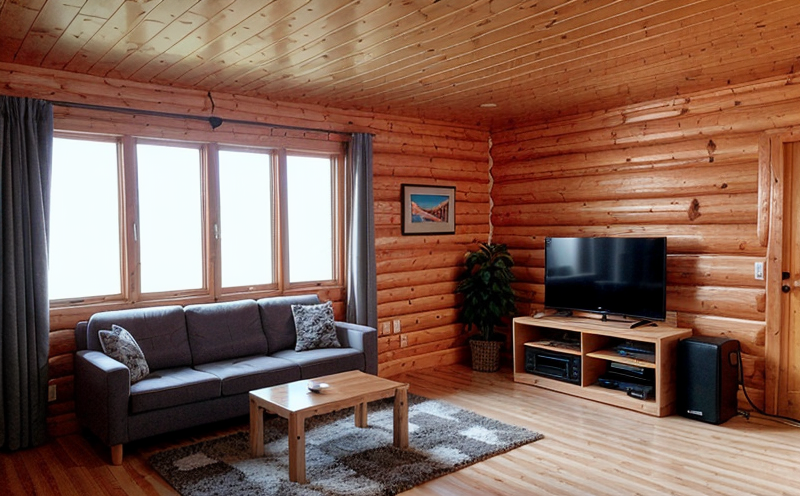EN 307 Cabin Humidity and Air Quality Testing
The European standard EN 307 is specifically designed to ensure that aircraft cabin environments meet strict requirements for humidity and air quality, which are critical factors in passenger comfort and health. Cabin air quality can significantly impact the well-being of passengers during flights, especially on long-haul journeys.
Cabin humidity levels directly influence the hydration status of passengers, with low humidity leading to dry skin, irritation, and respiratory issues. The standard sets forth guidelines for maintaining an optimal relative humidity between 20% and 45%, which is conducive to passenger comfort and health. This range helps prevent discomfort from excessive dryness while also reducing the risk of bacterial growth.
Aircraft cabins are enclosed environments with limited air circulation, making them particularly susceptible to the accumulation of contaminants such as volatile organic compounds (VOCs) and particulate matter. EN 307 specifies testing protocols for measuring these parameters, ensuring that cabin air quality is maintained at acceptable levels throughout the flight duration.
The standard also addresses the issue of microbial contamination within aircraft cabins, which can be a significant concern in confined spaces where passengers are closely packed together. Regular monitoring and testing according to EN 307 help ensure that any potential health risks are minimized.
Compliance with EN 307 is not only essential for maintaining passenger comfort but also crucial for the reputation of airlines and aircraft manufacturers. By adhering to this standard, companies can demonstrate their commitment to safety, quality, and environmental responsibility. This compliance is particularly important in the context of growing public awareness about air quality issues and the potential health impacts of poor cabin conditions.
In summary, EN 307 Cabin Humidity and Air Quality Testing plays a vital role in ensuring that aircraft cabins meet stringent requirements for passenger comfort and health. The standard provides a framework for measuring and maintaining optimal humidity levels and air quality standards, thereby enhancing the overall flying experience and safeguarding public health.
- Measuring relative humidity to ensure it is within the 20% to 45% range
- Testing cabin air for volatile organic compounds (VOCs) and particulate matter
- Monitoring microbial contamination levels in the cabin environment
EuroLab offers a comprehensive suite of services that cater specifically to the unique challenges faced by the aerospace and aviation industry. Our expertise in testing cabins for humidity and air quality is unmatched, ensuring that our clients can achieve compliance with EN 307 efficiently and effectively.
Our team comprises highly qualified professionals who possess deep knowledge of the standards and regulations governing this sector. This allows us to provide tailored solutions that address specific client needs. Whether it's conducting tests according to EN 307 or assisting in developing new protocols, our experts are committed to delivering excellence.
EuroLab’s state-of-the-art facilities are equipped with advanced instrumentation capable of performing precise measurements required by the standard. Our laboratories adhere strictly to international standards such as ISO/IEC 17025, ensuring that all results are accurate and reliable.
Our clients benefit from our extensive experience in working within the aerospace and aviation sectors. This includes handling complex projects involving multiple stakeholders across various domains. We understand the importance of maintaining confidentiality during such engagements and ensure that proprietary information remains secure throughout the process.
EuroLab’s commitment to innovation ensures that we stay at the forefront of technological advancements relevant to cabin comfort testing. By integrating cutting-edge technologies into our operations, we continually improve efficiency and accuracy in delivering services aligned with EN 307 requirements.
Why Choose This Test
- Ensures Passenger Comfort: Optimal humidity levels enhance comfort by preventing skin dryness and irritation.
- Promotes Health: Maintaining air quality standards reduces the risk of respiratory issues and other health problems.
- Achieves Regulatory Compliance: Ensuring adherence to EN 307 helps avoid penalties and maintains a good reputation.
- Supports Product Development: Regular testing contributes to continuous improvement in cabin design and materials used.
- Enhances Safety Standards: Continuous monitoring of microbial contamination minimizes health risks onboard aircraft.
- Satisfies Customer Expectations: Meeting these standards reassures passengers about the safety measures taken by airlines.
- Facilitates Business Growth: Compliance with EN 307 can attract more customers and improve brand image.
- Future-Proofs Operations: Adherence to current standards positions businesses well for future regulatory changes.





